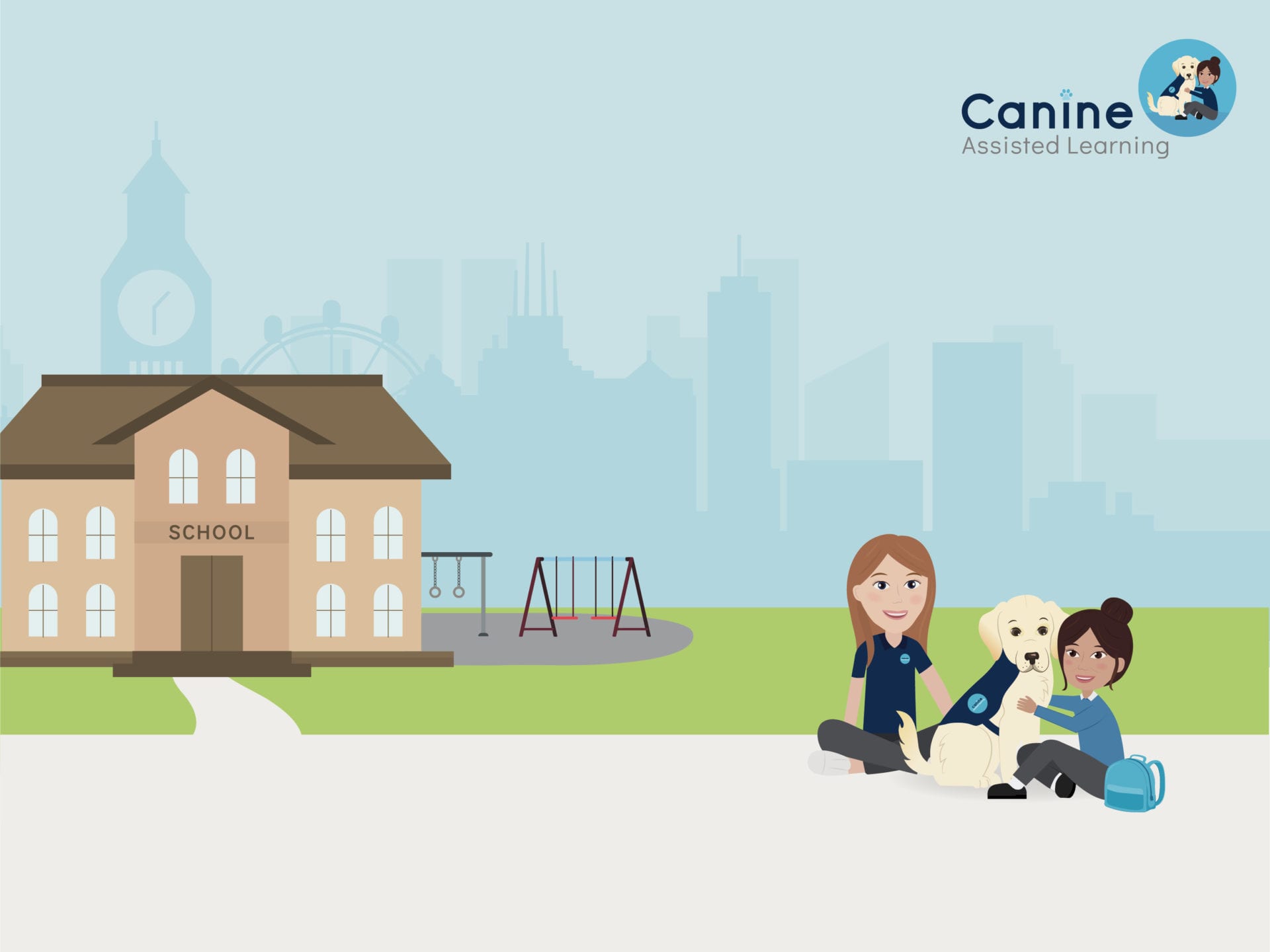

Talking Therapies
CAL animal assisted talking therapies offer a progressive and innovative therapeutic approach that engages young people through the development of the human animal bond. This has proved to be of huge benefit to those who struggle to engage in traditional talking therapies.
Our approach offers a different way of exploring difficult and sensitive issues, making it easier for the young people we work with to express their feelings and recount painful experiences. Our highly trained CAL dogs help create a calm and peaceful environment enabling our sessions to be of maximum benefit. We provide talking therapies to help with the following:
- Depression
- Anxiety
- Eating disorders
- Self harm
- Coping with change
- Working through traumatic and upsetting experiences
- Self regulation
- Bereavement
An intervention example: Lily, Senior CAL Dog
“Lily’s involvement was greatly acknowledged when we were able to work with a young person who was selectively mute and felt no-one other than Lilly, was safe enough to trust. This young person had not spoken in over two years and struggled to engage with any other therapies. Following a referral, in our first session Lilly’s presence immediately helped calm and contain the anxieties of this young person.
Whilst Lily is able to comfort and ‘hold’ the emotions in the room, it is the partnership between dog and therapist that truly helps see the results. With Lilly supporting the young person, they were able to engage with the therapist and build up a strong, working, therapeutic relationship. Over time, using an integrative counselling and animal assisted approach the young person was able to regulate and understand their emotions, whilst understanding the trauma that lay beneath. With many selectively mute individuals, a trigger can be initiated from a traumatic event. For this individual, being able to work with the therapist to replay and re-frame these events were necessary for any verbal communication to begin.
This also further improved additional challenges such as flashbacks and panic attacks. After further work, the therapeutic relationship was strong enough for the individual to feel they could communicate a word verbally. Starting small. Speaking to Lilly once a week allowed the process to begin and furthermore resulted in the individual trusting the therapist enough to communicate these worries.. Once this happened, the life of the individual began to greatly improve. Being able to form this therapeutic relationship and begin to communicate verbally meant other services were also able to be engaged.
Whilst this highlights some of the work that the therapist does, it would not have been possible if Lily was not there to make that individual feel safe enough to engage. Many young people feel they cannot relate and trust new people. However, dogs have the innate ability to comfort these uncomfortable feelings and to tolerate this whilst working therapeutically.
Thank you Lilly for supporting young people who fear the idea of ‘therapy’ and to comfort them whilst on this journey.”
To find out more please contact us



